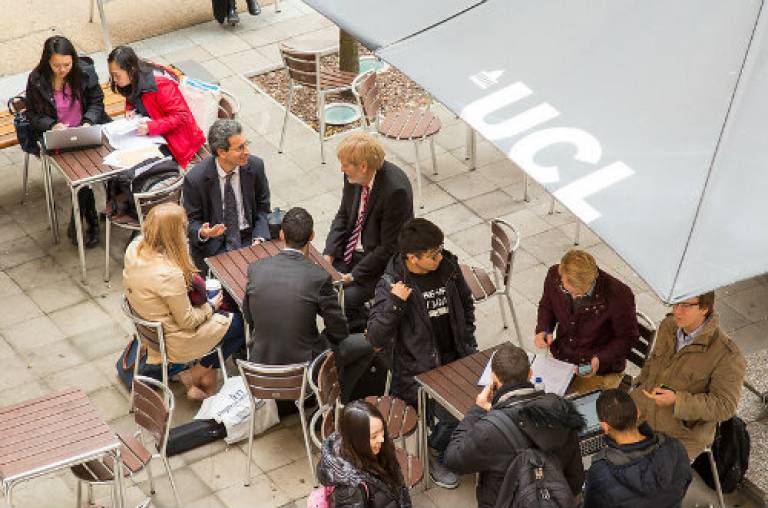UCL responds to government’s Higher Education green paper
21 January 2016
UCL has sent a robust response to the government’s Higher Education green paper published in November.

The green paper, Fulfilling our Potential: Teaching Excellence, Social Mobility and Student Choice, was widely seen as signalling the biggest shift in the national framework for higher education in England for a generation.
Much of the green paper outlines proposals for a Teaching Excellence Framework (TEF) and more detail on this is promised in a technical consultation to be published over the next few weeks.
Our response, submitted to the Department for Business, Innovation and Skills at the end of last week, challenged the green paper’s implication that research-intensive universities do not seek to provide a high quality student experience.
“Contrary to some of the statements [in the green paper], it is certainly possible for outstanding teachers to access opportunities for career and pay progression which are comparable to those of outstanding researchers,” our response states.
“Additionally, [we] are committed to academic excellence in the round … we are clear that teaching and research are both central functions of a university … our Connected Curriculum initiative demonstrates how the two can be embedded within taught programmes to inspire and educate students.”
Our submission argues that we recognise that appropriate reward and recognition for teaching is a challenge in research-intensive universities and “this is something that we, and others in the Russell Group, are addressing as a high priority”.
We make clear that it is difficult to give the government comprehensive answers to its questions on the green paper because of the limited detail available on the Teaching Excellence Framework and the lack of information about the implications for mature and part-time students.
Our submission draws the government’s attention to its inconsistencies – does it make sense to set fees at institutional level if performance is not consistent across the institution? And is it right that all institutions below the top TEF tier would take a cut to their budget in real terms if only the top TEF tier could raise their budgets in line with inflation?
While UCL supports the provision of comprehensive information to students, we have concerns about correlating ‘teaching quality’ with student satisfaction when the picture is more complex. The proposed metrics for teaching quality are problematic: student satisfaction is not a good proxy for teaching excellence.
“It is therefore misleading – and potentially damaging – to suggest that institutions should be rewarded for high ‘teaching quality’ if this is actually expressed, to a large extent, in terms of how satisfied students are with their programmes,” our response states.
We also do not believe that there is a link between ‘teaching intensity’ and the quality of teaching. The Destinations of Leavers from Higher Education data, which asks graduates what they are doing six months after graduation, is too narrow.
Our response outlines UCL’s concerns that the Teaching Excellence Framework may threaten institutional and sector autonomy, in particular if the intention is to introduce a TEF for postgraduate students and link this to fees, or if we intend to use Access Agreement targets in the metrics.
“The green paper prompts concerns that the TEF could be heavily bureaucratic and therefore poor value for money,” our response states. “Universities could potentially use the money required to run the TEF to enhance teaching directly. Students may object to the cost of the scheme, which will ultimately be funded from their fees.”
The green paper proposes that funding for teaching and research should be separated and overseen by two separate bodies. Our submission states that we can “see real risks inherent in establishing overarching structures within the sector that separate teaching from research at a time when universities are actively seeking to align these two core functions more explicitly”.
Professor Anthony Smith, Vice-Provost for Education and Student Affairs, said: “The implication in the Green Paper that UCL and other research-intensive universities do not prioritise teaching and therefore do not seek to provide a high-quality student experience is plain wrong. We are committed to academic excellence in the round and prefer not to separate teaching and research. We must persuade BIS of this and of the crucial importance of institutional autonomy for the continuing excellence of the UK HE sector."
- Read UCL's response in full (UCL log-on required)
 Close
Close

